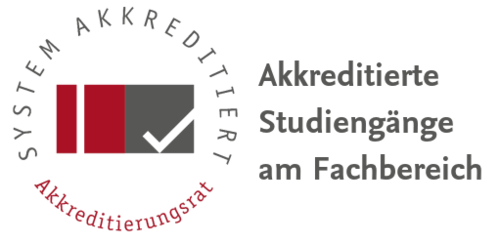We welcome new professors at our department
News from Oct 18, 2021
We are happy to welcome our new professors at the department of History and Cultural Studies at Freie Universität Berlin.
Univ.-Prof. Dr. Elke Hartmann (Institute of Turcology)My research focuses on Ottoman history of the 19th and 20th centuries, the era of modernization, state and nation building. I consider Ottoman history in its multiple contexts and various entanglements. In my dissertation I examined military conscription as an expression, indicator and instrument of Ottoman modernization, the expansion of the Ottoman state, as well as in terms of the shaping and significance of cultural, intellectual and technical adaptations. For my habilitation, based on autobiographical sources and using the example of Ottoman Armenians, I have turned to questions of the self-perception and placement of “minority” populations in the Ottoman state, Ottoman practices of rule in the periphery, and mechanisms of integration. In my current research project, I am addressing trans-Ottoman mobilities and Ottoman-Russian entanglements through the biographies and writings of some of the intellectual pioneers of Panturkism. For the coming years, I plan to establish two research fields at the Institute: on the one hand, a comparative study of Ottoman modern statehood, ruling practices, and social structures in the peripheral mountainous regions of the empire, which were hardly subject to central state control until the 19th century; on the other hand, I would like to bundle research on Ottoman history of concepts. |
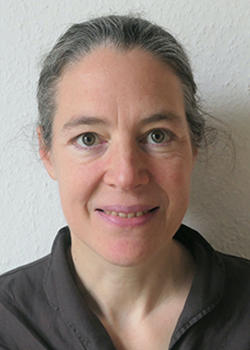 |
Dr. Juliane Noth (East Asian Art History)The focus of my research is on twentieth-century Chinese art, on how it was redefined with regard to historical practices as well as global entanglements, and on its institutional frameworks. My current research project “Artistic Practices during the Cultural Revolution: Actors, Media, Institutions” aims at complicating perceptions about the rich artistic production during the decade between 1966 and 1976. Besides the radical posters and writings created during the Red Guard movement and the officially endorsed arts of the 1970s, I also study the works by an earlier generation of artists who were formerly well established but now persecuted; by young artists working in private and outside the frameworks of socialist society; and by workers and peasants whose works were promoted as example of amateur art production. These artists developed various aesthetic strategies to either conform to or counter the strict political frameworks of the time. A second project is preliminarily titled “Envisioning Modern Chinese Art in Hangzhou: The National Academy of Arts, 1928–1937.” The art academy in Hangzhou was founded with the goal to establish a modern art education following the Beaux-Arts model and to realize the concept of “aesthetic education” envisioned by the minister of education, Cai Yuanpei. I am exploring the academy’s history from its founding to the beginning of the Sino-Japanese War, focusing on how the young faculty’s calls for a radical reform of Chinese art (put forth in the academy’s numerous programmatic publications) were reconciled with the practical exigencies of artistic training and the realities of the artworld of Republican China. |
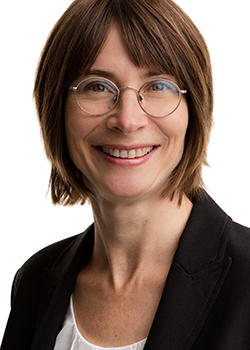 |
Univ.-Prof. Dr. Florian Zemmin (Institute of Islamic Studies)I am a scholar of Islamic and Middle Eastern Studies (PhD University of Bern, 2016) with a background in Cultural Studies and the Study of Religion (BA University of Bayreuth, 2007). As such, I integrate philological analyses of Islamic and Arabic fields of knowledge with theories and approaches from historical semantics, sociology of religion, and sociology of knowledge. My aim is to not only interrogate and understand Islamic and Arabic fields of knowledge with these theories, but to make them speak back to and, ultimately, integrate them into more general theories. My overarching area of research is Islam, modernity, and secularity. My regional focus thus far has been Egypt, with Morocco currently becoming more central. My current main project is on Arabic Sociologies of Religion. I also continue my programmatic work at strengthening conceptual history of Near Eastern languages as a field of research. Recent works illustrating my fields of research are: together with Henning Sievert, “Conceptual History of the Near East: The Sattelzeit as a Heuristic Tool for Interrogating the Formation of a Multi-Layered Modernity” Contributions to the History of Concepts (Winter 2021); “Soziologie in arabischen Gesellschaften”, in Heike Delitz, Julian Müller, & Robert Seyfert (Eds.), Handbuch Theorien der Soziologie (Springer VS, Autumn 2021); “Varieties of Secularity”, in Armando Salvatore, Sari Hanafi, & Kieko Obuse (Eds.), The Oxford Handbook of the Sociology of the Middle East (Oxford University Press 2021); Modernity in Islamic Tradition. The Concept of ‘Society’ in the Journal al-Manar (Cairo, 1898–1940) (De Gruyter, 2018). |
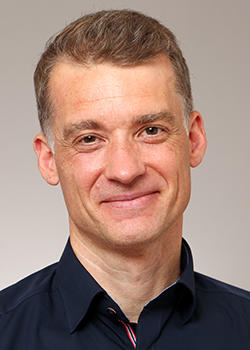 |
Dr. Dr. Mathieu A.J.H. Ossendrijver (Institute of Ancient History of Knowledge)Mathieu Ossendrijver is a historian of ancient science, Assyriologist (PhD), and astrophysicist (PhD) with a research focus on Babylonian astral science (astronomy, astrology, etc.) and mathematics, institutional, social and other contextual aspects of Babylonian scholarship, and cross-cultural transformations of knowledge between Babylonia and neighbouring cultures such as Egypt and the Greco-Roman world. He is the principal investigator of the research project „ZODIAC – Ancient Astral Science in Transformation“. The Advanced Grant No. 885478, which started in spring 2021, is funded over five years by the European Research Council. ZODIAC’s interdisciplinary approach conceives astral science as interconnected astronomical, astrological, mathematical, religious and social practices. This research endeavour develops a new account of the emergence, spread and cross-cultural transformations of zodiacal astral science. The project is hosted at the Institute for the History of Knowledge in the Ancient World. |
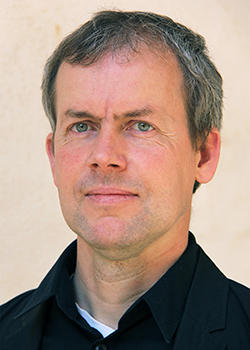 |

